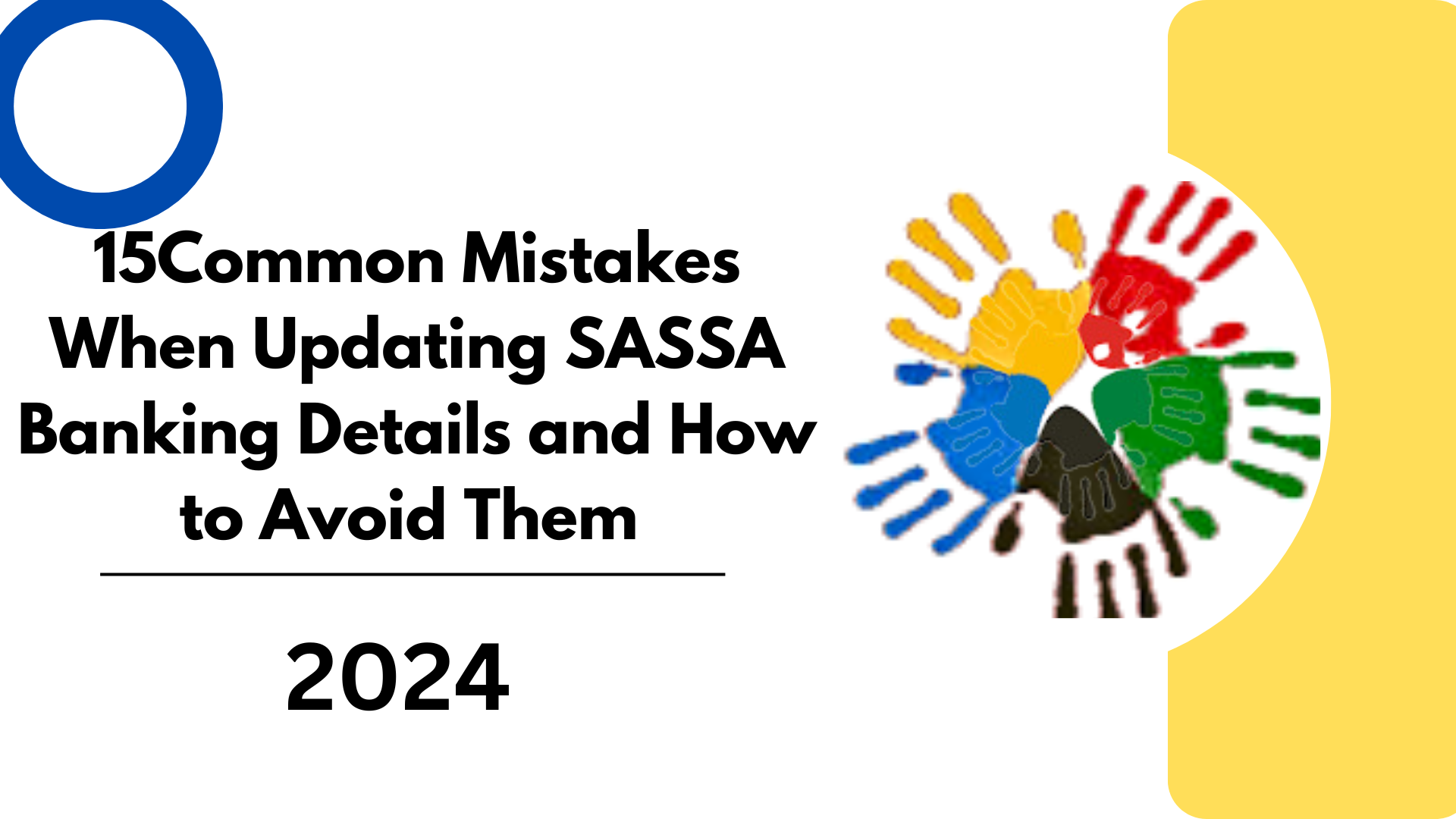15 Common Mistakes When Updating SASSA Banking Details and How to Avoid Them
Introduction
The South African Social Security Agency (SASSA) provides essential social grants to millions of South Africans. Updating your banking details with SASSA is crucial to ensure you receive your payments promptly and securely. However, many people make mistakes during this process, leading to delays or disruptions in their payments. This article will explore 15 common mistakes that individuals make when updating their SASSA banking details and provide practical advice on how to avoid them.
1. Failing to Notify SASSA of Changes in Banking Details
-
When recipients change banks or open new accounts, they often forget to notify SASSA promptly. This can result in missed payments or delays.
-
How to Avoid: Always inform SASSA immediately after changing your banking details. Ensure that the new information is accurately reflected in their system.
2. Incorrect Account Numbers
-
Submitting incorrect account numbers is one of the most frequent mistakes. Even a single digit error can cause your payment to be deposited into the wrong account.
-
How to Avoid: Double-check the account number before submitting. If possible, ask your bank for a written confirmation of your account details.
3. Providing Incomplete Information
-
Some individuals fail to provide all the necessary information required by SASSA, such as the bank name, branch code, or account type.
-
How to Avoid: Ensure that all fields in the SASSA banking details update form are completed. If you’re unsure about any information, consult your bank.
4. Not Using the Correct Forms
-
Using outdated or incorrect forms to update your banking details can lead to processing errors.
-
How to Avoid: Always download the latest version of the SASSA banking details form from their official website or obtain it directly from a SASSA office.
5. Failing to Submit Proof of Bank Account
-
SASSA requires proof that the bank account is in your name. Failing to submit this documentation can delay the processing of your update.
-
How to Avoid: Provide a bank-stamped statement or a letter from your bank that clearly shows your name, account number, and bank details.
6. Ignoring the Verification Process
-
After submitting your updated banking details, SASSA may require you to verify the information. Ignoring this verification step can cause issues.
-
How to Avoid: Follow up with SASSA to ensure that your new banking details have been verified and approved.
7. Delaying the Update Process
-
Some people wait until their payment is due before updating their banking details. This often results in missed or delayed payments.
-
How to Avoid: Update your banking details as soon as they change, and allow sufficient time for SASSA to process the update before your next payment is due.
8. Not Keeping a Copy of the Submission
-
Failing to keep a copy of the documents you submit can create problems if there’s a dispute or issue with your update.
-
How to Avoid: Always keep copies of all forms and documents submitted to SASSA, including proof of submission.
9. Relying on Third Parties to Submit Updates
-
While some may rely on friends or family to submit their updates, this can lead to errors or delays if the third party is not diligent.
-
How to Avoid: If possible, submit the update yourself. If you must use a third party, ensure they understand the importance of accuracy and promptness.
10. Not Updating the Bank When Personal Details Change
-
If your personal details change (e.g., name, ID number), you must update both your bank and SASSA to ensure consistency.
-
How to Avoid: Update your personal details with your bank first, and then notify SASSA to prevent discrepancies.
11. Overlooking SASSA Communication
-
Ignoring emails or SMS notifications from SASSA regarding your banking details can lead to unresolved issues.
-
How to Avoid: Regularly check your communication from SASSA and respond promptly to any requests or notifications.
12. Providing Outdated Information
-
Submitting old banking details after changing banks can cause your payment to go to the wrong account.
-
How to Avoid: Ensure that the information you provide is current and accurate, and immediately inform SASSA of any changes.
13. Not Following Up on the Update
-
Some individuals assume their update has been processed without checking with SASSA. This can lead to unexpected payment issues.
-
How to Avoid: After submitting your update, follow up with SASSA to confirm that the change has been processed and approved.
14. Failing to Update Details After Closing an Account
-
If you close your bank account without updating your details with SASSA, your payments may be delayed or lost.
-
How to Avoid: Always update your banking details with SASSA before closing any account that receives payments.
15. Assuming the Process is Automatic
-
Some people believe that their banking details will automatically update through their bank. This is not the case.
-
How to Avoid: Understand that you must manually update your banking details with SASSA; this process is not automated through your bank.
Conclusion
Updating your banking details with SASSA is a crucial step in ensuring that your social grant payments are received without interruption. By avoiding the common mistakes outlined in this article, you can help ensure a smooth and efficient update process. Always remember to be proactive, double-check your information, and follow up with SASSA to confirm that your details have been updated correctly.

